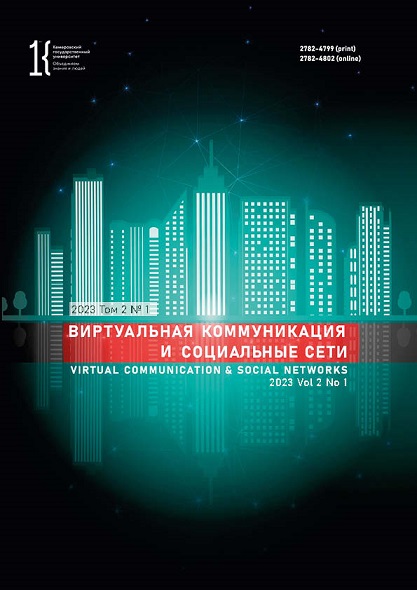Kemerovo, Russian Federation
from 01.01.2007 until now
Kemerovo, Russian Federation
The article features Internet memes based on A. S. Griboyedov’s Woe from Wit. This comedy in verse is on all Russian school reading lists, but it can compete with current events and mass culture phenomena as a source of Internet means. The plot is so recognizable and the verse is so easy to remember that the token names, quotes, and plot guarantee successful communication. That is why Woe from Wit has become a popular subject of ironic interpretation for Russian Internet users. The memes are somehow connected with its main character, Chatsky, and the main conflict. However, the simplification and irony usually follow the traditional critical and literary interpretations. Some memes reflect not the reader’s experience but the experience of studying this literary work at school. Given the ability of memes to replicate, the current interpretation is likely to be quite stable.
Woe from Wit, Internet meme, meme, creolized text, literary meme, Internet communication, virtual communication
1. Aikhenvald Yu. I. Griboedov (To the play Woe from Wit). Silhouettes of Russian writers. Moscow: Izd. "Nauchnago slova", 1908, iss. 1. (In Russ.)
2. Arshinskaya N. A. Internet-memes in communicative space: functions. National Association of Scientists, 2015, (6-3): 49-52. (In Russ.)
3. Boeva G. N. «Literary internet meme» as a means of communication. Contemporary discourse analysis, 2020, (2-2): 4-9. (In Russ.)
4. Gridina T. A., Talashmanov S. S. The metalinguistic meme: linguocreative mechanisms of generation and perception. Political linguistics, 2020, (2): 134-143. (In Russ.) https://doi.org/10.26170/pl20-02-14
5. Goncharov I. A. A Million Torments (a critical study). Collected Works. Moscow: Goslitzdat, 1955, vol. 8, 7-40. (In Russ.)
6. Danilenko V. P. The Restless Man in Russian Classical Literature. Scientific and pedagogical journal of Eastern Siberia Magister Dixit, 2013, (2): 226-238. (In Russ.)
7. Dabrorodni D. G., Golubev I. S., Sarycheva A. V. The phenomenon of political internet memes in the modern media space. Journal of the Belarusian State University. Philosophy. Psychology, 2020, (2): 18-24. (In Russ.)
8. Dawkins R. The Selfish Gene. Moscow: Mir, 1993, 318. (In Russ.)
9. Pushkin A. S. Letter to A. A. Bestuzhev. Collected works. Moscow: GIKhL, 1962, vol. 9, 134-135. (In Russ.)
10. Sorokin Yu. A., Tarasov E. F. Creolized texts and their communicative function. Optimization of speech impact, ed. Kotov R. G. Moscow: Nauka, 1990, 180-186. (In Russ.)
11. Tretyakova I. Yu. Mythological phraseological units with anthroponym component in the modern mass media. Man in the information space, ed. Kuranova T. P. Yaroslavl: YSPU, 2019, 12-20. (In Russ.)
12. Fortunatov N. M., Fortunatova V. A. Psychological actualization as the key to the perception of the Russian classics (the image of Chatsky). School technology, 2017, (1): 86-92. (In Russ.)
13. Shatin Yu. V. Chackij: experience of parrhesia. Theater and drama: the aesthetic experience of the era, 2016, (3): 28-35. (In Russ.)
14. Shchurina Yu. V. Internet memes in the structure of comic speech genres. Genres of speech, 2014, (1-2): 147-153. (In Russ.)
















